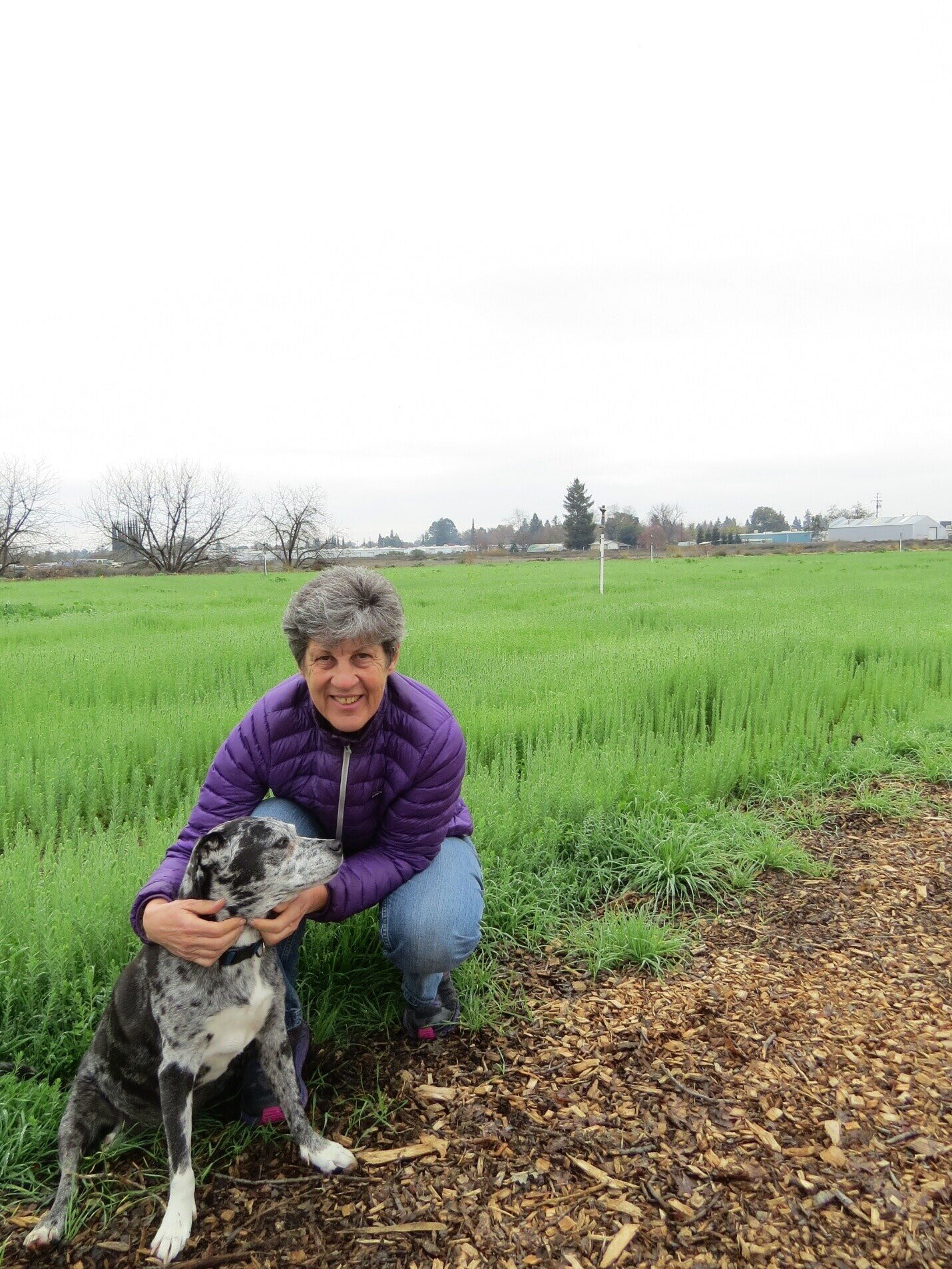Sandy and her dog at the farm
Sandy Fisher, chief executive officer of Chico Flax LLC, has been growing fiber flax in Northern California for over nine years. Three years ago, local flax growers acquired a 3.75-acre farm that was once an almond orchard.
“We were faced with the challenge of converting an orchard into row crop farming,” Sandy says, explaining the poor soil condition that stunted the growth of the flax when it was first planted. “When we heard about the CDFA Healthy Soils Program grant, we felt this would give us the opportunity to make the necessary changes to the land.”
Chico Flax LLC then developed its healthy soils project in collaboration with California State University and the Chico Department of Agriculture to use the 3.75-acre parcel as a regional prototype of sustainable flax production. They coupled the $10,700 grant funds from CDFA with a $5,000 cost-share to implement the three-year healthy soils project.
In the past year and a half, the farmers have planted 1,600 feet of hedgerow, applied woodchip mulch around the more than 1,000 plants, and grown both winter and summer cover crops.
“Using earthworms as an indicator for soil health, a year later to our delight, the soil showed great improvement where before we seldom saw earthworms,” Fisher said. The project not only improves soil health, but also provides habitat for wildlife, sequesters soil carbon, and reduces GHG emissions.
Chico Flax LLC farmers expect to see a steady increase in soil organic carbon over the coming years because of high carbon input from the mulch and cover crops. To enhance outcomes further, they are planning to introduce goats, which will reduce the use of herbicides for weed control and further increase carbon sequestration. Fisher says they expect additional benefits from this project that will improve the farm’s resilience in the face of climate change, such as crop resistance to drought stress and pest pressure.


